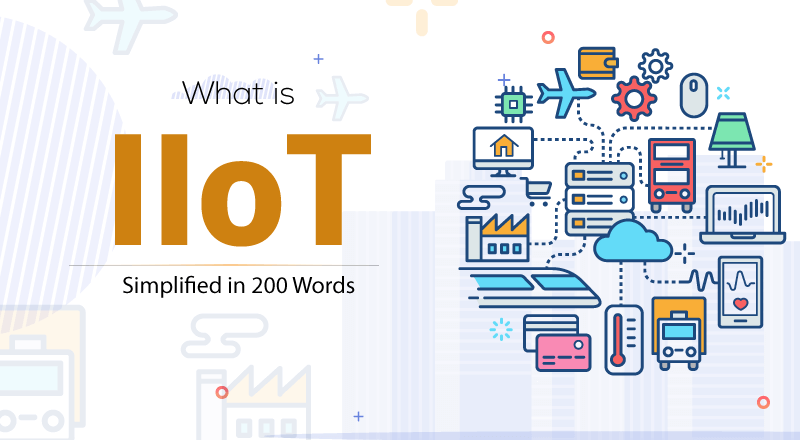

November 20, 2019
June 29th, 2023
Industrial IoT (IIoT) refers to the extension and use of IoT in the manufacturing industry.
It is actually machine-to-machine communication where the machine interacts with other machines or objects in order to produce the data.
IIoT automates, speeds up, and redefines the ways machines communicate with each other.
A huge volume of data gets generated and that data gets processed and analyzed to make decisions faster and more precise.
The goal of IIoT is not just to make machines smarter but also to help in the reduction of human errors and manual labour.
Cyber-Physical System, Cloud Computing, Edge Computing, Big Data, and AI and ML are key technologies used for implementing the IIoT
Architecture Includes:

IIoT Applications are generally used in Facility Management, Inventory Management, Supply Chain, etc.
Companies like IBM Corporation, Intel, GE, etc. are implementing IIoT to increase productivity.
Advantages
Limitations
Businesses that embrace IIoT are sure to improve operations and enhance product quality.
A Good Read: Industrial IoT (IIoT): Higher Productivity. Higher RoI
SPEC INDIA is your trusted partner for AI-driven software solutions, with proven expertise in digital transformation and innovative technology services. We deliver secure, reliable, and high-quality IT solutions to clients worldwide. As an ISO/IEC 27001:2022 certified company, we follow the highest standards for data security and quality. Our team applies proven project management methods, flexible engagement models, and modern infrastructure to deliver outstanding results. With skilled professionals and years of experience, we turn ideas into impactful solutions that drive business growth.
SPEC House, Parth Complex, Near Swastik Cross Roads, Navarangpura, Ahmedabad 380009, INDIA.
This website uses cookies to ensure you get the best experience on our website. Read Spec India’s Privacy Policy